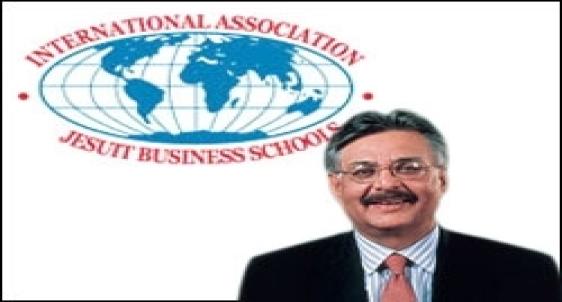
The forum held at XLRI campus saw ITC Chairman Deveshwar asking B-schools to indulge in meaningful research
The 15th World Forum of the International Association of Jesuit Business Schools (IAJBS) came to a close in the second week of June 2009. The three-day international event, which has hosted at Xavier Labour and Relation Institute (XLRI) Jamshedpur, saw delegates including deans, directors and senior professors from B-schools in USA, Europe, Asia Pacific and India delivering speeches and sharing concerns on the issue of sustainable development.
ITC Chaiman and CEO Y.C. Deveshwar while emphasising the invaluable contribution that can be made by Jesuit B-Schools said, “The B-schools could engage in meaningful research, in collaboration with business and industry, to find innovative solutions that address the sustainability challenges of economies like ours. This would not only help corporate recipients but also be a valuable input for government policies.” The speakers also delved on alleviating poverty through social ventures and global sustainability and shared their expertise.
After a three-day discussion on the theme ‘taking the lead towards sustainable development’, the IAJBS came up with an 11-point agenda:
- IAJBS becomes signatory of UN Global Compact’s Principles for Responsible Management Education, and will develop systems, processes and mechanisms for adherence to those. (The six principles are: Purpose, Values, Method, Research, Partnership and Dialogue.)
- IAJBS recommends all member institutions to sign these principles.
- IAJBS recommends that sustainability be included in the institutions’ strategic plan. It was suggested that Global Sustainability should form the major theme of the IAJBS Forum in the years to come and that a committee should be formed for including Sustainable Development as a course in Jesuit B-schools.
- It asked the schools to make socio-environmental concerns and ethical fibre a non-negotiable part of admissions filter. If the primary reason why a student is joining an MBA course is to land up in a lucrative job, mere two years of teaching cannot change that mindset.
- Schools were advised to review programme syllabus and course structure to align them with sustainability goals. For instance, a large number of MBA courses in the B-school syllabus focus on enhancing and managing ‘financial wealth’. They need to be balanced with equal number of MBA courses which focuses on enhancing ‘social capital’ and ‘environmental capital’.
- The forum felt that students fail to appreciate the socio-environmental issues as impacting businesses because there is no social science department providing grounding in subjects like Sociology, Anthropology, and Political Science. It said that inducing social science in the MBA courses was more important in India, since most students come with science and engineering backgrounds.
- What students see around them, in terms of how the institute is managed, can be a powerful learning message, the forum advised. Therefore, the institutes should themselves use green technology and recycle papers and books.
- Similarly, the institutes can themselves become example of ‘inclusive development’ by promoting positive discrimination in their internal practices.
- B-schools can run allied community and environment-based programmes by engaging the students enrolled in various MBA courses, and make it a part of learning or perhaps even evaluation.
- The forum asked the B-schools to introduce compulsory internships for its students with a social/development sector organisation as part of their MBA courses structure. This would expose them to other options for careers which are more inclusive in approach and focus.
- It was also held that the IAJBS can act as a platform for sharing best practices and cases on teaching approaches for sustainability.
The IAJBS will form a sustainability development committee, which would ensure that all global Jesuit B-schools adhere to the concepts discussed at the forum. Dr. Gregory Ulferts, Executive Director, IAJBS announced the decision and said that James Koch from Santa Clara University, USA, would be the committee coordinator. Koch spoke on developing a network to address poverty through social entrepreneurship and cited the examples of Gram Vikas and NUDIP in Sudan to prove his point.
Fr. E. Abraham, S.J. Director XLRI, also proposed for setting up a membership committee to increase the numbers of regional members globally. He proposed that every member school should set up a Chair Professorship in Sustainable Development, so that this movement can be carried forward by every B-school. Prof. Madhukar Shukla from XLRI spoke on the initiatives taken by XLRI to promote social ventures and explained how its students take trips to rural parts as part of projects.


























